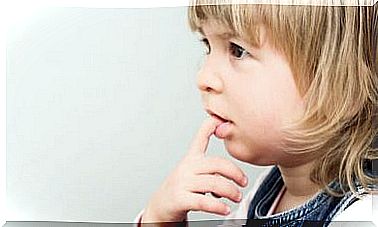Parental Burnout: What Is It And How To Deal With It?

You may have heard the term ” burnout ” referring to the workplace. This concept refers to a situation of sustained stress that affects the well-being and performance of workers. But did you ever think that the same thing could happen in parenting? Indeed, parental burnout reflects the reality of many fathers and mothers.
The current lifestyle has several characteristics that increase the risk of suffering from this syndrome. In the first place, the incorporation of women into work and the insufficient participation of men in domestic tasks means that the burden of mothers is much higher than it was previously.
On the other hand, the upbringing of minors is increasingly taken into consideration and the demands in this regard are greater every day. Thus, fathers and mothers may find themselves unable, at any given moment, to continue coping with these pressures.

What is parental burnout?
The burnout parent is a syndrome that can affect parents with children of all ages. This is essentially characterized by a great physical, mental and emotional exhaustion that arises in response to the sustained stress that parenting implies. That is, when the demands, demands or tasks these parents face exceed their resources to face them. Thus, the main manifestations are the following:
- Subjective feeling of extreme exhaustion in relation to parenting. All the tasks and activities associated with the care and education of children are perceived as excessive and overwhelming, and sleep is not enough to eliminate the feeling of physical and mental fatigue.
- There is an emotional distancing from the source of stress, which in this case is the children themselves. Thus, parents may tend to deal only with essential aspects, such as food, clothing or transportation of their children, but, on the other hand, ignore emotional care.
- Parenting, once enjoyed, is now perceived as a source of displeasure. Adults no longer enjoy interacting with children and feel, furthermore, that their performance as parents has dramatically worsened. Even the children themselves can also identify this change and let their parents know that they are no longer the same. As a result of all the above, feelings of guilt, sadness or anxiety arise.
What are its consequences?
All parents can feel the above at any given moment, but when this dynamic is prolonged in time, the consequences can be significant. First, the burnout parent may end up leading to anxiety disorders and depression if not properly addressed. But, in addition, the emotional bond between parents and children and the care that the latter receive can become deficient.
When emotional distancing occurs, adults can fall into negligent behavior and even verbal or physical aggression towards their children. Given the emotional damage that this can cause in minors, it is essential to identify and address parental burnout as soon as possible.
How to deal with parental burnout?
The burnout parental arises when the demands of parenting outweigh the resources of the parents. Thus, the main measure will be to reduce this burden or increase coping tools.
In this regard, the equitable distribution of tasks between both members of the couple is essential; but, in addition, it may be necessary to seek the support of family, friends or professionals who can help with the care of minors, thus lightening the burden.

On the other hand, personal beliefs play a fundamental role. This syndrome arises many times due to the high self-demand of adults. If perfect educational standards are set, it will be exhausting for them to try to meet them.
Flexibility and relativization can be important to reduce discomfort ; It is not necessary to follow each parenting pattern to the letter, as the theory must be able to adapt to our personal situations.
Finally, if the manifestations of this syndrome are identified, going to psychotherapy can be of great help. Identifying emotions, letting them out, managing them and looking for effective solutions is not always an easy task. Therefore, having an adequate accompaniment and guide can facilitate the process.










